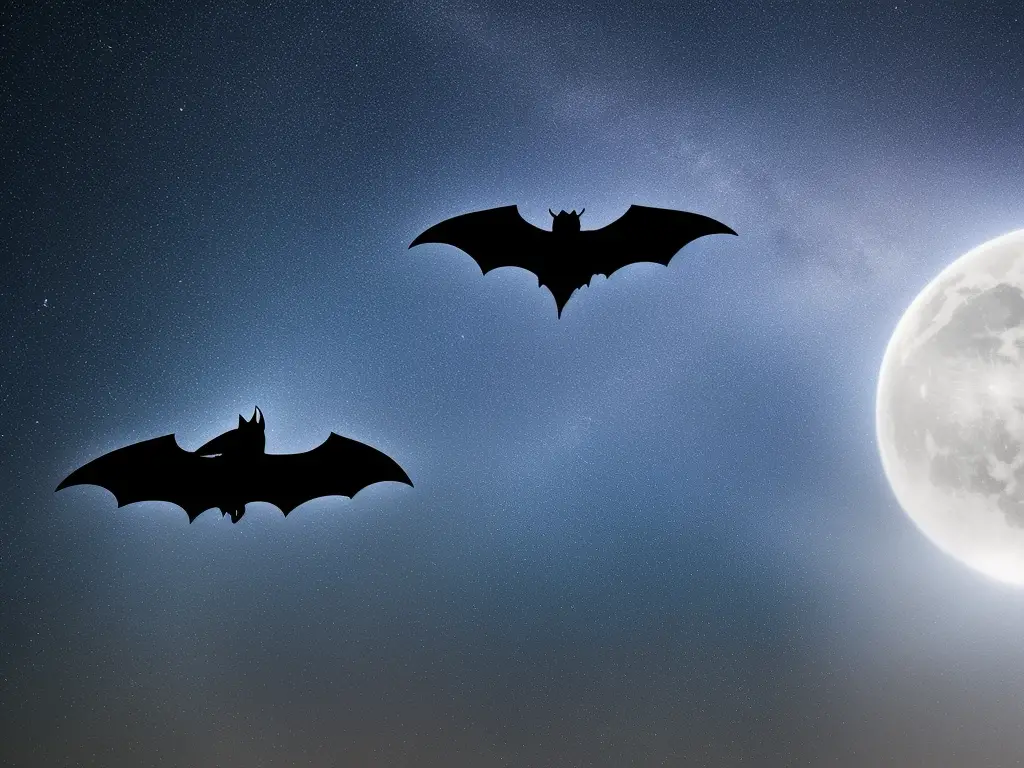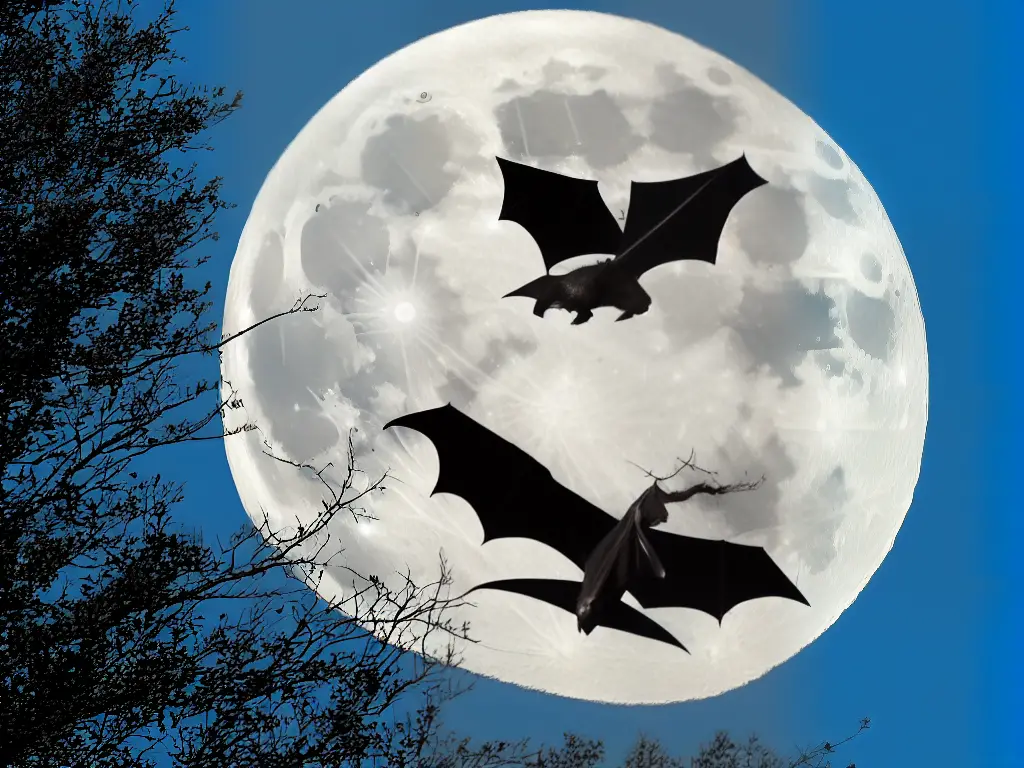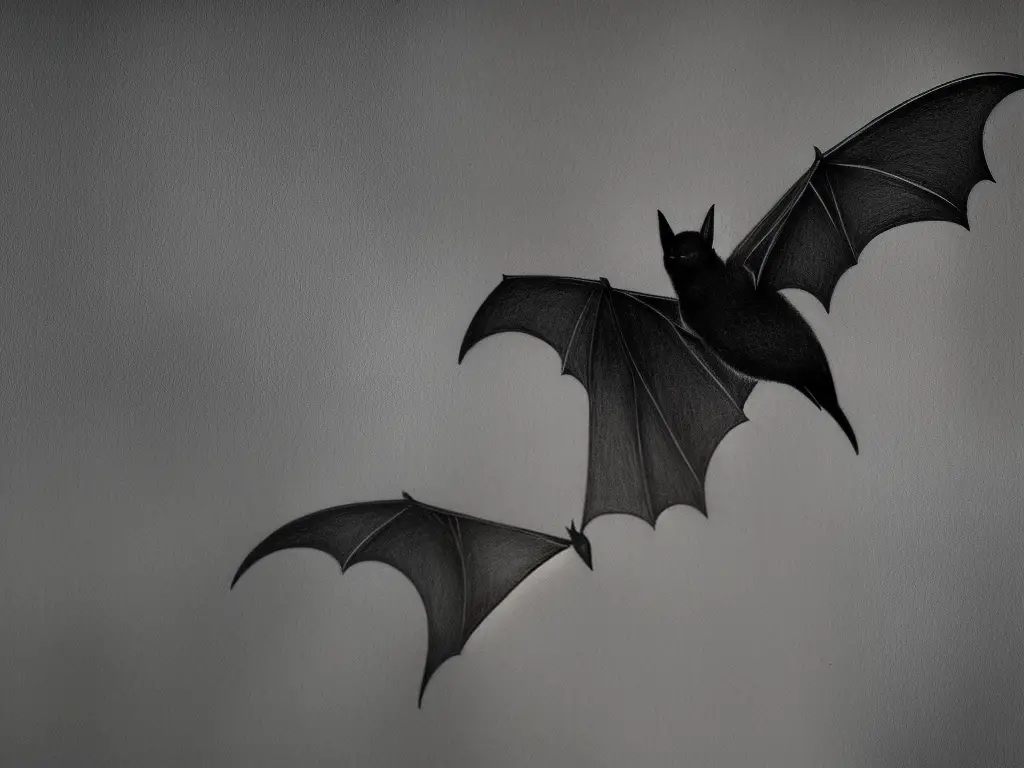Interpreting dreams has been an integral aspect of various cultures and religions throughout human history, and Islam is no exception to this fascination. In Islamic tradition, dreams hold a high level of importance and can carry significant meaning for the dreamer. With that in mind, understanding the symbolism behind key elements in these dreams, such as bats, is crucial. This exploration delves into the world of Islamic dream interpretation, the significance of bats in Islamic culture and teachings, and how the psychology of dreams can tie everything together.
Islamic dream interpretation
In Islamic culture, dreams are considered to be one of the ways that Allah communicates with humans, providing them with insights, warnings, and divine messages. Islamic dream interpretation, therefore, is an essential aspect of Islamic spirituality.
Dream interpretation in Islam is based on the teachings of the Holy Quran and the Hadith (the sayings of the Prophet Muhammad). Scholars and experts of Islamic dream interpretation have developed their own guidelines and principles to interpret dreams in line with Islamic teachings.
Dreams in Islam are classified into three categories: true dreams (visions from Allah), self-related dreams (reflections of one’s emotions and thoughts), and satanic dreams (deceptive dreams from the Devil). True dreams are believed to hold deeper meanings and spiritual insights, hence interpreting them accurately is of great importance.
Islamic dream interpretation relies on symbolism, whereby certain objects or creatures may have specific meanings and interpretations.
As for bat dream Islamic meaning, bats can symbolize various connotations in Islamic dream interpretation. Bats are often regarded as creatures of the night and are associated with darkness, ambiguity, and uncertainty. In an Islamic context, seeing a bat in a dream may signify negative attributes, such as ignorance, concealment, or confusion in one’s life. It can also represent someone who is dishonest or deceitful, since bats are known for their elusive and secretive nature.
However, it’s important to mention that Islamic teaching emphasizes the need to take into account the whole context of a dream, rather than merely focusing on a single symbol or element. In some cases, a bat in a dream might represent something positive, like overcoming challenges or discovering hidden truths.
When interpreting dreams in the context of Islamic teachings, it is crucial to follow the guidelines provided by the Quran, the Hadith, and the expertise of scholars in the field of Islamic dream interpretation. Considering the Islamic meaning of bat dreams, one can use this interpretation as a starting point for self-reflection and analyzing how it might be relevant to their personal circumstances and spiritual journey. It is essential to approach Islamic dream interpretation with wisdom and discernment, ensuring that any guidance derived from a dream aligns with the core values and teachings of Islam.

Context of bats in Islamic culture
Within Islamic culture, bats have a particular significance as they often symbolize darkness or an individual’s inability to transform through spiritual growth. Though not explicitly mentioned in the Quran, the Muslim holy book, there are certain instances and verses that provide insight into the meaning and symbolism of bats in Islam.
For example, in Surah Al-Baqarah, the Quran mentions that those who do not believe in Allah’s word are confined to a life of darkness, akin to a bat living in a cave. This association of bats with darkness has contributed to the meaning of these nocturnal creatures within the Islamic tradition.
In terms of Islamic interpretation, dreams are considered to be of three types: true dreams, which serve as a form of guidance from Allah; false dreams, which are rooted in anxiety and the subconscious; and dreams from Shaytan, the devil, which are meant to mislead people.
Dreams about bats tend to carry negative connotations within Islamic culture, but the meaning of the dream can vary depending on the context and details of the dream.
In some instances, the presence of a bat in a dream may be interpreted as a warning that the dreamer must confront and overcome the darkness and fears within their lives. In this regard, the bat may symbolize the challenge to confront one’s fears in order to emerge from the darkness and undergo spiritual transformation. Bats have also been associated with deceit or falsehood, so the dreamer may be encouraged to reassess the individuals in their life or avoid becoming entangled in deception or falsehood.
Dream interpretation in Islamic culture has deep roots in the teachings of Prophet Muhammad, who believed that dreams played an essential role in a person’s spiritual life. In this context, dreaming about bats can be seen as a warning, urging the dreamer to seek spiritual guidance and strengthen their relationship with Allah.
Though bats are commonly associated with negative connotations in Islamic culture, it’s essential to consider the context and details of the dream when deciphering its meaning. The intricacies of dream interpretation go beyond a one-dimensional interpretation of individual symbols. Therefore, when analyzing the meaning of a bat dream within an Islamic context, it’s crucial to consider the dreamer’s personal experiences, emotions, and spiritual beliefs to gain a deeper understanding and insight into their subconscious.

Famous Islamic dream interpreters and their works
Islamic dream interpretation has a rich history, with many scholars throughout the ages studying and authoring texts on the subject. Two such influential scholars, Ibn Sirin and al-Nabulsi, have had a significant impact on the world of dream interpretation. Deeply rooted in tradition and symbolism, Islamic dream interpretation continues to provide valuable insights and understanding for those who seek to explore their subconscious through the lens of their spiritual beliefs.
Muhammad Ibn Sirin (653-728 CE) is one of the most famous Islamic dream interpreters. He was born in Basra, Iraq, and became a prominent scholar in several fields, including hadith and dream interpretation. Ibn Sirin’s most famous work is the “Book of Dreams,” which provides extensive information on interpreting various types of dreams and their symbols. Among his interpretations, he adds particular significance to the presence of bats in dreams. In the Islamic perspective, seeing a bat in a dream represents ignorance or a person who follows false teachings. Ibn Sirin states that if a person is stung by a bat in a dream, it indicates that the person will be harmed by their own ignorance or will follow false teachings.
On the other hand, the scholar and poet Abd al-Ghani al-Nabulsi (1641-1731 CE) is another prominent figure in the world of Islamic dream interpretation. Born in Damascus, Syria, al-Nabulsi studied and authored texts in a wide array of fields, including literature, poetry, theology, and mysticism. His most well-known work is “T’atir al-Anam fi Tafsir al-Ahlam” (The Book of Assembling Dreams), a comprehensive guide to dream interpretation and symbolism. According to al-Nabulsi, bats in dreams may also symbolize ignorant people or individuals who are unable to see the light of guidance. He asserts that if a person kills a bat in a dream, it indicates overcoming their own ignorance and following the true teachings of Islam.
Both Ibn Sirin and al-Nabulsi have left lasting legacies in the field of Islamic dream interpretation, with their methodologies and interpretations widely used throughout history. It is important to note that while they provided guidance on interpreting dreams such as the bat dream, the scholars also emphasized the individual nature of dream interpretation. A person’s unique experiences and spiritual state must be considered when interpreting the meaning of their dreams.
In dreams, the bat symbol often represents ignorance or following falsehoods, but interpreting these images in the context of a dreamer’s personal experience is crucial. It is equally important to recognize that dream interpretation in Islam is highly subjective, and no single interpretation can be universally applied to all individuals. By studying the works of prominent Islamic scholars like Ibn Sirin and al-Nabulsi, one can develop a broader understanding of how to interpret dreams while acknowledging that each dream’s meaning may ultimately be unique to the dreamer.

Bats in the Quran and Hadith
Bats are mysterious creatures with unique characteristics and nocturnal habits, often capturing the curiosity of people. In Islamic tradition, the interpretation of dreams is a rich area of exploration, with sources such as the Quran and Hadith offering guidance and context for understanding their meanings. To comprehend the significance of bat dreams in Islam, it is crucial to examine the mentions of bats within these religious texts.
While the Quran does not specifically reference bats, it does include verses discussing the creation of all animals by Allah. For example, in Surah An-Nahl (16:16), the Quran states, ‘He created the cattle from water for you; in their bellies, there is warmth, and from among them, you get numerous benefits, and from them, you derive food.’ Although this verse does not directly mention bats, as one of Allah’s creations, they are included within His will. As such, the appearance of bats in dreams can be seen as a divine message.
In some collections of Hadith, which are reported sayings and actions of the Prophet Muhammad, bats are mentioned and may provide more context for understanding their meaning in Islamic dream interpretation. According to one Hadith, the Prophet Muhammad said, ‘There is no contagious disease, nor is there any evil omen; I like the good omen, a good word: righteousness’ (Sahih Bukhari 9135). This teaching suggests that the presence of creatures like bats should not be assumed to be a negative symbol or omen.
The specific context of a dream is considered essential when interpreting its meaning in Islam. A bat’s appearance in a dream can have multiple interpretations based on the surrounding circumstances, emotions, and personal beliefs. For instance, a bat appearing in a dream accompanied by fear or anxiety may reflect the dreamer’s inner turmoil. Conversely, if the dreamer associates bats with positive qualities, the bat may symbolize resourcefulness and adaptability.
Additionally, Islam encourages curiosity and the pursuit of knowledge, including understanding the natural world and its inhabitants, such as bats. Dreams featuring bats could also be invitations to learn more about their biology, behavior, and ecological roles. In conclusion, while bats are not directly mentioned in the Quran, drawing on broader Islamic teachings and Hadith can provide a more comprehensive understanding of the potential significance and meaning of bat dreams within the Islamic tradition.

Psychology of dreams
Stemming from this fascination with dreams, both the general public and scientists are captivated by the study of dreams and their meanings. Across the centuries, research and speculation have revolved around dreams, delving into the reasons behind why we dream, the purpose or function of our dreams, and how they can represent our thoughts and emotions.
Within the realm of psychology, the study of dreams seeks to gain insights into our minds, making it an even more compelling topic for those interested in understanding the human psyche and how dreams can reveal aspects of our inner world. By bridging the study of dreams in various cultural and religious contexts, including Islam, we can develop a richer understanding of how humanity perceives and interprets these nightly phenomena and how they may provide us insights into our own lives and emotions.
This quest for understanding dreams cuts across various cultures and belief systems, including Islamic interpretations – which offer a unique and religion-specific outlook on dream meanings. In this regard, we will delve into the significance of bat dreams in Islamic dream culture, and how they hold special meaning and insight from a psychological perspective.
The psychology of dreams postulates many theories that attempt to explain their function and purpose. Some well known theories include the activation-synthesis hypothesis, which claims that dreams are a by-product of brain processes; psychoanalytical theories, which assert that dreams are an outlet for our repressed thoughts and desires; and cognitive theories, which propose that dreams are a way for our brain to process and organize information.
All these theories suggest that dreams can help us understand our own mental and emotional states, as well as negative and positive experiences. In Islamic dream interpretation, the concept of what bats symbolize as a dream may reveal similar psychological aspects of our lives.
In Islamic dream culture, the bat is often associated with darkness, confusion, uncertainty, and deceit. From a psychological perspective, dreaming of bats could indicate that individuals may be grappling with their own hidden fears, anxieties, or even deceptive tendencies. It might also be a manifestation of a certain lack of inner clarity or stability in the dreamer’s waking life, thereby exploring their feelings and uncertainties in their subconscious minds.
However, it is crucial to note that dream interpretation is subjective and contingent on one’s personal experiences, cultural context, and belief systems, which shape the meaning derived from the dream.
Considering the Islamic meaning of bat dreams may also prove insightful into the broader cultural values and schemas that underpin this tradition. In Islamic dream interpretations, the bat may be associated with an individual’s moral compass, highlighting the presence of underlying character traits such as dishonesty or misguided judgment.
This serves as a reminder that one’s dreams can possess cultural and psychological significance, shedding light on their values and attitudes towards life. Additionally, acknowledging these dream symbols can prove to be a useful tool in personal growth and introspection, as they invite reflection on one’s beliefs and affinities.
Lastly, it is worth mentioning that the complexity and subjectivity of dream interpretation, particularly in Islamic dream culture, imply that dreams cannot be universally decoded or understood. Each individual’s experience of a bat dream might yield different meanings, depending on personal, cultural, and religious contexts.
For centuries, dreams have been a subject of study and interpretation, holding significance in various cultures, religions, and spiritual practices. In the context of Islamic beliefs, dreams are considered important sources of spiritual guidance and messages from God. However, it is crucial to note that these interpretations should only serve as guides for self-reflection rather than hard and fast rules or prescriptions.

General dream symbolism
By exploring and embracing the significance of dreams from diverse perspectives, including the psychology of dreams and Islamic dream meanings, one can truly appreciate and comprehend the multifaceted dimensions of our subconscious minds and the impact it has on our waking lives. In particular, the study of dream symbolism, such as bat dreams in the Islamic context, can enhance our understanding of these complex subconscious messages and provide valuable insights into our spiritual lives.
Bats are intriguing creatures that have held different symbolic meanings across cultures. Generally, bats are seen as symbols of transition, change, and rebirth as they emerge from dark caves and venture into the night, signaling the end of one phase and the beginning of another. In some cultures, bats are associated with good luck, while in others, they signify darkness, fear, or negative energies.
In the Islamic tradition, dreams are divided into three categories: true dreams (rahmani) that come directly from God, self-inspired dreams (nafsani) arising from one’s thoughts and desires, and devilish dreams (shaitani) caused by Satan. Interpreting bat dreams in Islamic dream symbolism largely depends on the context of the bat’s appearance and the emotions felt during the dream. For example, if the dreamer experiences positive emotions when encountering a bat, it could signify positive change, spiritual growth, or blessings on the horizon.
Conversely, if the dreamer feels fear or discomfort in the presence of a bat, it could indicate an inner struggle or the need for self-reflection in the face of challenges. In Islamic dream interpretation, bats can also represent individuals who have strayed from the right path, succumbed to the temptations of the material world, or engaged in sinful activities. Encountering bats in a dream may serve as a reminder to stay true to one’s beliefs, adhere to moral principles, and maintain a strong connection with God.

Comparative dream interpretation
Dream symbols and themes are significant in Islamic dream interpretation, as they are believed to convey messages and guidance related to one’s life and spiritual journey. In this tradition, dreaming of a bat is often associated with darkness, negativity, and uncertainty. As nocturnal creatures inhabiting the dark and associated with the night, bats may represent the presence of evil or negative influences in one’s life. Furthermore, their reliance on echolocation to navigate their environment can serve as a metaphor for an individual’s ability or struggle to see through deception and illusion.
When analyzing bat dreams in the Islamic context, it is essential to consider the entirety of the dream and the dreamer’s personal experiences and beliefs. Bat symbolism in dreams is multifaceted, and the meaning of a bat dream can change depending on the feelings, colors, and actions present in the dream. Ultimately, taking the time to thoroughly analyze and reflect on your dreams can provide valuable insights and help deepen your understanding of the messages being conveyed in your subconscious mind.
Comparatively, in Western dream symbolism, bats may also symbolize negative connotations, such as fear, anxiety, or even death. However, they can also represent transformation, intuition, and the subconscious mind. Thus, while in Islamic culture bats might be considered a negative omen, in Western culture, they may carry both positive and negative messages, offering a broader perspective on the symbolism of these creatures. Common associations in the West include rebirth, breaking free from old habits, confronting fear, and developing psychic abilities.In Native American cultures, dream interpretation also plays a significant role in providing insight and guidance. Bat dreams can have various meanings, often attributed to the specific traditions and beliefs of each tribe. In some Native American cultures, a bat may be viewed as a symbol of intuition and sensitivity. Bats are associated with the night, and they are considered to be spirit animals that help people connect with their spiritual selves. Therefore, dreaming of a bat could represent a message from the spirit world or reflect one’s connection to the spiritual realm.In Chinese culture, though bats are still associated with darkness and mystery, their symbolism carries more positive connotations. Bats within Chinese beliefs represent happiness, good fortune, and prosperity. Dreaming of a bat could signify the arrival of financial success or a positive change in one’s life. Chinese interpretations stand distinctively different from Islamic and Western dream interpretations, illustrating the diversity of symbolic meanings across cultures.In Japanese folklore, bats are commonly associated with happiness, good luck, and protection. There are traditional Japanese charms known as “omamori,” which often feature bat designs. These charms are believed to offer protection and blessings to their owners. While dreaming of a bat in Japanese culture could signify positive changes and opportunities, it ties back to the idea of transformation and growth. This highlights the versatility of bat dream meanings, as various cultures attribute distinct symbolic significance to this nocturnal creature. Taking these cultural interpretations collectively can broaden one’s understanding of the bat dream Islamic meaning and demonstrate the potential influence of one’s cultural context on dream symbolism.

After exploring the various aspects of bat dreams and their Islamic interpretations, it becomes evident that these nocturnal creatures may hold more meaning than one might initially think. By learning about Islamic dream interpretation, bat symbolism in Islamic culture, and how the mind processes dreams, individuals can gain a deeper understanding of their own emotions, thoughts, and spiritual guidance. Furthermore, examining these interpretations through a comparative lens – looking at how other cultures and religions view bat dreams – enriches our overall understanding of the diverse and complex ways in which dreams can speak to our human experience.
